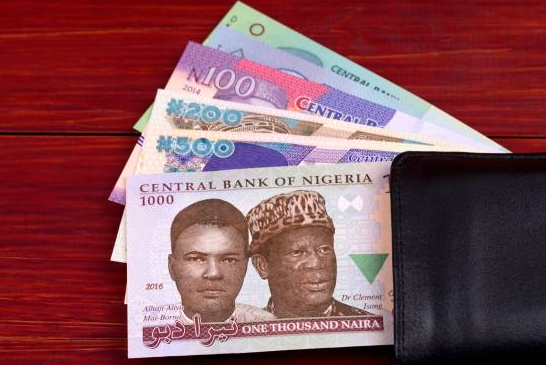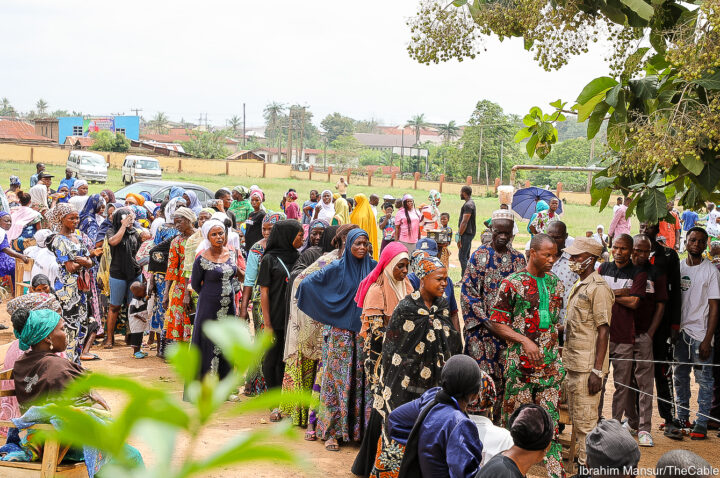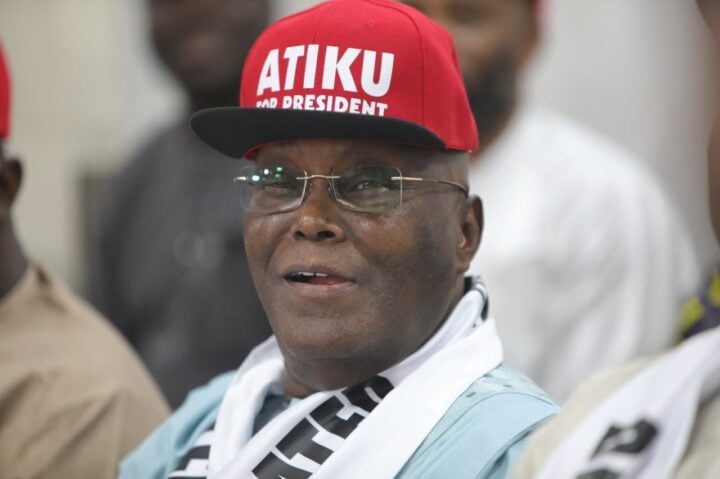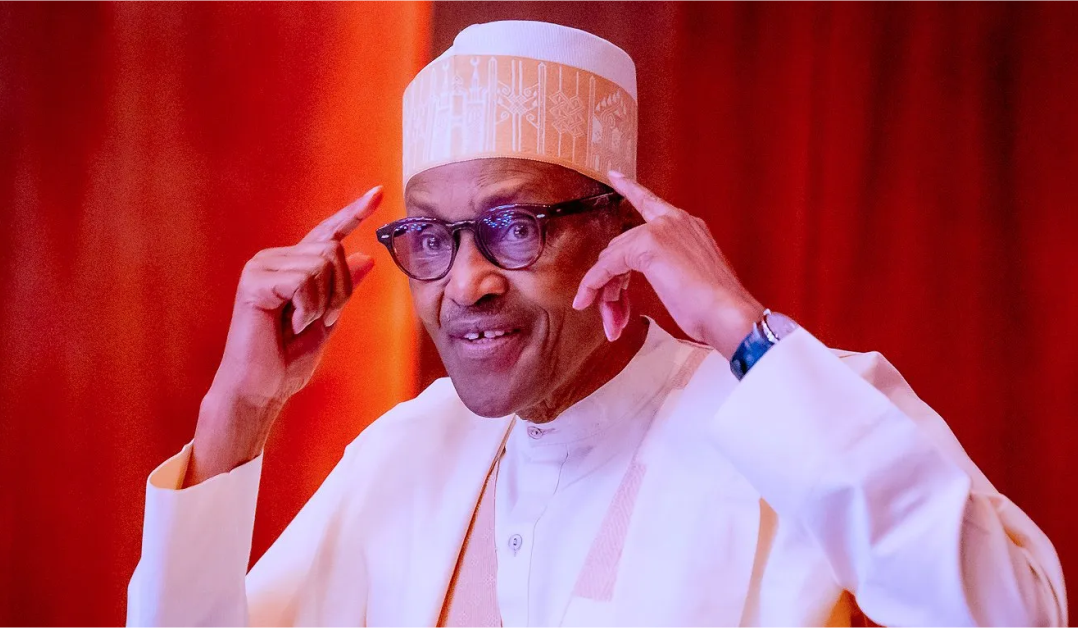Economics, back in my secondary school days, used to be one subject I did not score less than an “A”, except in the West Senior School Certificate Examination (WASSCE) where I scored “C4”, which is a decent return, for a student who grew up without the luxury of a personal library, or extramural lessons, except when an exam is about a couple of days away. But, the fear of Mathematics would not let me toy with the idea of going for such courses at the university level, where one would be required to offer courses that are rooted in calculations even though I later got to know that it would have been easier for me to pass Mathematics than it was to pass English Language.
Nonetheless, that does not prevent me from understanding some basic economic principles governing income and expenditure. The need for the study of Economics in the first place, I understand, is the appreciation of the fact that available resources are in short supply, relative to needs, and most often, wants. Hence, the need to draw up a “scale of preference”, from which “choices” would be made as to which of the numerous needs or wants deserves the most urgent attention, and on which the available resources should be spent.
Sometimes, needs are so numerous and important that it is very difficult to leave one out using the scale of preference. Such a situation always calls for calculated borrowing. So, while borrowing might not be a bad idea, it could be very tormenting paying back — which is a must. That is why it is advisable that one carries out painstaking cost-benefit analysis of the investment that warrants such borrowing. I am talking about a thorough investment analysis to determine the payback period and the ability to meet up with the repayment obligations.
Growing up, my late father would always remind me; “whoever goes a-borrowing, goes a-sorrowing”, with interesting anecdotes to back it up. So, borrowing is one thing I always plan and try to avoid in whatever I do, if I could. But borrowing, as it is all over the world, is an age-long instrument of public financing. It is used to finance a budget deficit by way of investment in infrastructure with a high propensity for return on investment (ROI), not to meet recurrent expenditures like payment of workers’ salaries and allowances, estacodes for politicians, among other frivolities. It could also be used to reflate a recessive economy, by way of injection of funds to stimulate production or to prosecute a (not an avoidable) war.
Advertisement
In Nigeria, at the moment, all the above-mentioned circumstances are staring at us, and that has kind of given the current administration a license to continue to borrow (permit me to say, recklessly), to finance one project or the other, without any structural plan on how such a project pays for itself. When those who are blessed with a third eye on economic matters as it affects the macroeconomy raised the alarm on the dangers inherent in reckless borrowings, some political apparatchik of the ruling party, the All Progressives Congress (APC), would swiftly resort to name-calling and guilt-tripping. They are wont to remind us of our purportedly robust standing in terms of gross domestic product, GDP-to-Debt ratio, or how cheap such loans are, forgetting that a cheap loan still has to be repaid.
Meanwhile, these debts are denominated in foreign currencies against which our currency, the naira, is very weak. They, out of ignorance, mischief or both, failed to look at the country’s ability to pay, vis a vis, our earnings from exports; crude oil being the major one. In the last seven years, the value of the naira has fallen by over 200% and still going. This is not unconnected with our consistent deficit in balance of payment, as a result of that which is occasioned mainly by that of balance of trade deficit. We import more items than we export. One does not need to be a professor of econometrics to see the dangers ahead if the trend continued. When they raise a bond, either in euros or dollars, they come back jubilating, citing over-subscription, as if a eurobond being over-subscribed is the same thing as winning an Olympic medal.
Although I do not have a PhD in econometrics, my O-level in common sense enables me to understand that Nigeria, at the current rate of borrowing, might be going back to the pre-1999 era when the national debt profile was as high as any heavily indebted country and the obligation to service it was becoming so asphyxiating that some experts said we were not so far off from being in a serious economic crisis. Until Obasanjo came on board and enlisted the international clouts of Dr. (Mrs.) Ngozi Okonjo-Iweala and other economic technocrats to secure debt relief/forgiveness from the London and Paris Clubs and the International Monetary Fund.
Advertisement
Successive governments, after Obasanjo’s, have continued to contribute to the ignoble journey back to the league of heavily indebted countries (HICs). But none has contributed more than the current administration. I once told a friend that with the rate at which the federal government, under the leadership of President Muhammadu Buhari, is borrowing, the Nigerian economy might sooner rather than later be heading for the rock. My fear was confirmed last week when the minister for finance, budget and national planning, Zainab Ahmed, came out to tell the whole world that the country’s debt servicing costs in the first quarter of 2022 was ₦1.94 trillion — ₦310 billion higher than the actual revenue received during the period. What that means is that, as of March 2022, the federal government’s earned revenue was only ₦1.63 trillion, meaning 49% of the expected revenue of ₦3.32 trillion for that period.
Anyone who finds this shocking is either ignorant, mischievous, or both, considering the series of monumental revelations of corruption in the system. Remember the accountant-general of the federation just got indicted, suspended and he is undergoing trial for an alleged fraud of over ₦100 billion. From oil theft, revenue leakage, contract inflation to outright stealing of public funds, the corruption stinks to high heaven. Most of the revenue-generating agencies of governments at all levels are guilty of diverting into private bank accounts, funds that ordinarily should have been paid into the treasury single account. I think it is high time Nigerians started asking questions as to why the political elites reserve for their children, employment in government agencies like the Federal Inland Revenue Service (FIRS), Nigerian Maritime Administration and Safety Agency (NIMASA), the Nigerian Port Authority (NPA), the Nigerian National Petroleum (formerly Corporation, but now) Company (NNPC) Limited, the defunct Petroleum Products Price Regulatory Agency (PPPRA) among others? But, I do not think the answer is that difficult to come by, it is down to the sleaze going on in those agencies, irrigated by the opaque system in operation and the systemic nepotism that has signposted recent appointments into them.
The Niger Delta region had been relatively quiet for about half a decade now simply because of the unhindered oil theft going on in the region. This is the price the country has to pay for the expensive peace to sustain the modest productivity in the oil and gas sector. That is a major reason why Nigeria has, for years now, not been able to meet her OPEC quota as small as it appears, compared to other countries in the Middle East. The quota which has been increased from 1.799 million barrels per day (mbpd) in June to 1.826mbpd in July 2022 is not likely going to be met as our average daily crude production was 1.238 million barrels per day in June, leaving a shortfall of about 600,000 bpd which invariably translates to a loss of revenue.
More so, the recently commercialised Nigerian National Petroleum Company (NNPC) Limited, which is supposed to be a significant contributor to the federation account through earnings from oil ventures has been found wanting because it has on its hands, a behemoth of corruption enterprise called fuel subsidy. If the provision in the 2022 appropriation act is anything to go by, the country will spend at least ₦4 trillion on subsidy this year and more next year unless the much-awaited Dangote Refinery comes to the rescue by commencing operation soonest. Nigeria is purported to be consuming as much as over 100 million litres of petrol daily. A lie from the pit of hell. The subsidy is being paid anyway. These absurd reasons explain why the high price of crude oil (over $100 per barrel) on the international market has not, in any way, been beneficial to the nation. Whatever we realise from what we export is put into importing refined products at the same international rate determined by the market forces of demand and supply.
Advertisement
Meanwhile, we’re supposed to have four refineries (one each, in Kaduna, Warri, and two in Port Harcourt). Unfortunately, none has been working for decades, despite the huge amount of money pumped into it for turnaround maintenance, and huge salaries and allowances for hundreds of non-working engineers. It has ignited an unnecessary increase in the domestic pump price, thus further exacerbating the already bad socioeconomic situation of an average Nigerian. While petrol sells for between ₦190 and ₦250 per litre depending on your location in the country, diesel goes for nothing less than ₦820 per litre. Meanwhile, the domino effects of these on the prices of essential commodities is something that would be felt by everybody who resides within the territory of the Federal Republic of Nigeria, except Aso Rock.
The manner of privatisation of the power sector under the administration of Dr Goodluck Jonathan is the greatest organised crime against the people of the Federal Republic of Nigeria. The sector that is set up to light up the economy and the streets of the nation is configured in such a way that Nigerians now pay for darkness. The economy needs to be powered for the MSMEs to function as the bedrock of the economy. Goods that ordinarily could be produced locally are being imported because it is more profitable importing than producing locally. That has rendered the economy too import-dependent to absorb any shock occasioned by the volatility of the international oil price. Our generator-powered economy is too weak to the point that we just have to embark on the importation of certain goods into the country if we must keep body and soul together. Meanwhile, importing those goods amounts to exporting jobs meant for Nigerians. So, this thing is a double-edged sword.
The issue of insecurity, some people have opined, has become a “cash cow” of a sort. The federal government has spent billions of dollars in extra-budgetary allocation to acquire military equipment for the fight against terrorism, and miscellaneous security challenges yet, Nigeria is no less safe than Libya, Afghanistan, or Ukraine. It has constituted a major drain on the treasury; the economy is bleeding as a result.
It is on record that Nigeria operates the most expensive democracy in the world. But I also like to add the most wasteful civil service in the world, where dozens of agencies are created and given overlapping functions. Concern for this unnecessary duplication of agencies and functions causing commotion here and there was what led to the constitution of the Oronsaye committee on the reform of the civil service, the report of which recommends that some ministries, departments, agencies and parastatals be either scrapped or merged to save cost and enhance more efficiency in the country’s public service delivery. But the recommendations contained in the report have been, up to this point, ignored while it’s been business as usual.
Advertisement
With all the concomitant shortfalls in revenue using what I call The Kao Kudi (bring money) economic philosophy, the managers of the country’s economy believe, the only way out of this fiscal logjam is continuous borrowing. They think the country can borrow her way to prosperity and economic stability. I doubt if that could be possible. Another strategy they are aware of is the imposition of all manners of taxes on the citizenry. I am not saying taxation is an anomaly, but quoting a former British prime minister, Winston Churchill: “Any nation that thinks it can tax its citizens to prosperity, is like a man who is standing in a basket and hopes to lift himself up, with the basket”. While I’m not condemning taxing the citizens as it is a matter of constitutional obligation of a citizen, we need to be careful so that it would not turn out to be a disincentive to national productivity.
Here are steps that must, in my opinion, be taken to avert the looming dangers:
Advertisement
Now that we are earning less than we are spending with debt-servicing taking almost the largest chunk of it, I think somebody needs to speak to President Buhari in the language he understands most that it is high time he dropped that iconic toothpick that is emblematic of his “I-don’t-care” attitude towards issues of national importance. He must face squarely the core business of governance by taking some deliberate steps and decisive actions where and when necessary.
He is reputed for having “zero tolerance” for corruption. Furthermore, he must strive to live up to that reputation by taking a second look at his anti-corruption campaign. Likewise, he must make sure that those who stash revenue collected on behalf of the government in private bank accounts are prosecuted. The government must evolve systemic transparency that makes it unattractive to be involved in corrupt practices that characterise the operation of agencies like NIMASA, NNPC, FIRS, NPA, etc.
Advertisement
The presidency must make it a matter of utmost urgency to get to the root of the cartel that perpetrates oil theft on such a large scale that it drastically affects revenue at all levels of government. The new NNPC must be made to be truly commercialised such that in the next decade or thereabout, it would be in the same league as ARAMCO, Petrobras, Gazprom, among other big boys in the global oil sector.
Projects executed with most of those loans which we’re servicing must be made viable through the appointment of the right people into the right positions. Recruitment must not be based on the quota system, as in the NNPC of yesteryears so that it can be run efficiently to contribute its expected quota in revenue to the coffer of the federal government. Recruitment must be need-based, and not mere name-dropping. These would ensure that the refining capacity of the four refineries, added to the about-to-be-commissioned Dangote Refinery, would see to it that the country no longer imports refined products and would be able to save foreign exchange and be able to meet our debt obligations while embarking on drives to reverse the perennial infrastructural deficits.
Advertisement
The electricity distribution companies alongside the GenCos, and TCN must be made to supply electricity instead of the uninterrupted darkness that Nigerians are being made to pay for so that the economy can be powered in an efficient and sustainable way. The MSMEs are the fuselage of the national economy and it needs electricity to sustain themselves in playing the divine role of employing the majority of the country’s working population.
On security, whatever needs to be done to nip insecurity in the bud must not be spared so that it can stop constituting a drain on our national purse. Whoever is found to be sabotaging the efforts of the counter-insurgency, no matter how highly placed, must be apprehended and prosecuted.
Then lastly, the Oronsaye report must be implemented to make sure that we cut down on the waste of public funds. Its recommendation must also be extended to the various political offices, especially, those that are not provided for in the constitution. Serious consideration should be given to the idea of a unicameral national assembly. The retinue of special advisers, special assistants and other ridiculous offices disguised as instruments of socioeconomic empowerment by the different officials must be eliminated to save funds for projects that will endure with far-reaching impacts on the wellbeing of the people. Politicians must always endeavour to come up with better and more productive ways of empowering people rather than the current system of using frivolous appointments to settle political IOUs.
“We must do something before something do us”.
If nothing is done, and urgently so, we may not be able to ‘Avoid the Road to Colombo’.
Aso Rock must do away with the era of the civil service being the only booming industry. We must eliminate the retinue of rent-seeker in the corridors of Aso Rock, and other government houses in the 36 states of the federation, and the federal capital territory.
Abubakar writes from Ilorin. He can be reached via 08051388285 or [email protected]
Views expressed by contributors are strictly personal and not of TheCable.







